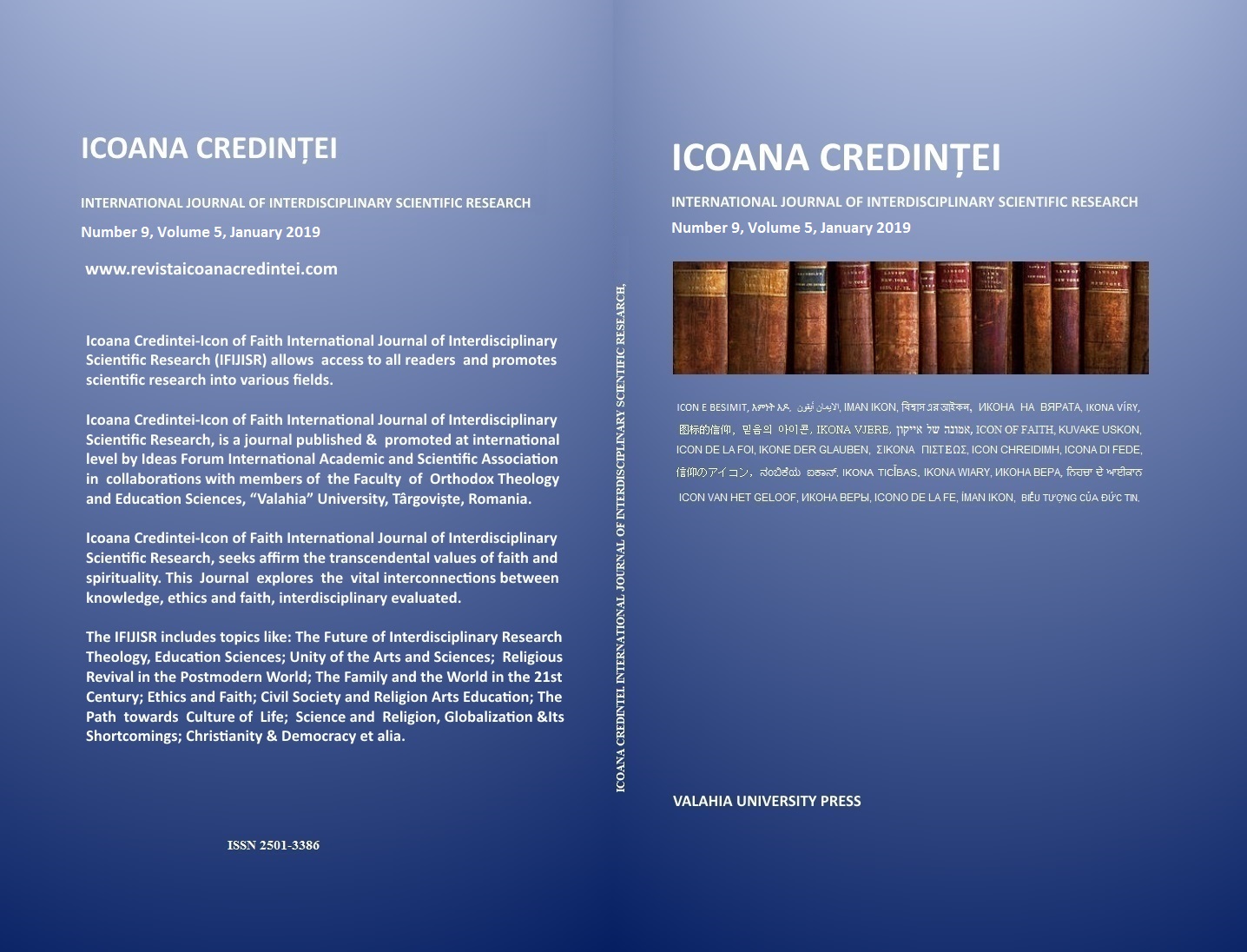Empirical theology, the only dynamic reality Vitalizing the synergy between academic theology and the Church mission in the Contemporary society
Empirical theology, the only dynamic reality Vitalizing the synergy between academic theology and the Church mission in the Contemporary society
Author(s): Ion Marian CroitoruSubject(s): Christian Theology and Religion, Theology and Religion
Published by: Ideas Forum International Academic and Scientific Association
Keywords: Church; Orthodoxy; mission; spirituality; academic theology; empirical theology; theology teacher; holy-spiritual life (life in the Holy Spirit); purification; illumination; deification;
Summary/Abstract: Spiritual experiences of the Church Saints and the Church teachings are stored invarious testimonies (texts, monuments, artistic expressions etc.) about the Churchpresence and walk in the world. Theology, as a science, under the form ofcurriculum disciplines, searches for answers, draws conclusions, rehabilitates ina critical manner, studies and interprets all these testimonies or draws argumentsfrom them in the endless dialogue between the Church and the world. Theframework of this approach, aimed at studying the Church testimonies, alsoincludes the education offered in the Faculties of Theology. This educationtransmits to students, on the one hand, knowledge obtained as a fruit of scientifictheological research, and, on the other hand, gives them orientation in the Churchlife, namely in the life according to Jesus Christ’s teaching, as it has been livedand experienced by the Saints. Theology, in all its manifestations, represents aChurch function, and its space is the Church body, consequently it is related to theChurch mission in the world. For this reason, the function of the Church, as placeof worship and of healing for man, and the function of School, be it Faculty ofTheology or Theological Seminary, are related, being one. Both the Faculty ofTheology and the education it provides belong to the vocational domain, whichsupposes not just external training, namely the appropriation of knowledge, butespecially inner training, spiritual transformation and ascension, because thegraduates’ role, regardless of whether they become clerics or religion teachersetc., is to be a catalyst in the society and to promote a fundamental thing: man’ssalvation. Due to this thing, the mission of the Faculties of Theology belongs tothe framework of the Church mission, and the student’s life to the sacramentaland liturgical space of the Church. Consequently, the scientific and positivecharacter of academic theology, as theological function of the Church and of hermission, must have in view the aim of the theological education received in aFaculty of Theology, namely, the cultivation of the therapeutic-ascetic function ofthe Church, in other words, the student’s integration in the spiritual life of theChurch, which is expressed by the living of the states of purification, illuminationand deification, namely his integration in the Church spirituality, where he oughtto feel the Saints’ communion. All these confirm the reality of empirical theology,as a binder between academic theology and the Orthodox Church mission, butalso the relation that ought to exist between the place of worship and the Faculty of Theology, in other words, yet, starting from the latter, the relation betweenacademic theology and Church life or between erudition and the way of living andthinking of the Church. Neglecting the role of empirical theology, as the onlydynamic reality vitalizing the synergy between academic theology and the Churchmission in the contemporary society, will trigger many negative consequences, bythe materialization of certain trends that many theology teachers have drawn ourattention to.
Journal: ICOANA CREDINTEI. International Journal of Interdisciplinary Scientific Research
- Issue Year: 5/2019
- Issue No: 09
- Page Range: 54 - 71
- Page Count: 18
- Language: English

